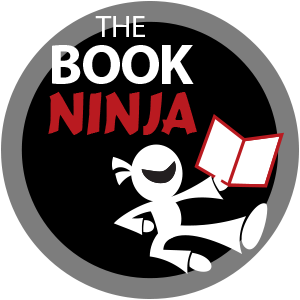This is a question I get from almost every first-time author, especially those new to the world of book publishing. While it’s true on the very rare occasion an idea is swiped, it rarely happens in the world of books. If you’re concerned about your book’s “safety” while in the hands of reviewers, editors and designers, here are some things you can do to feel more comfortable about sharing your work…
Only Give it to People You Trust
Really, it’s that simple. I have yet to hear of one of my author’s work stolen by a trusted family member, friend or service provider. The hard truth is, it’s a lot harder for someone to rip off your idea than you might think. First of all, you can easily trace it to them because you know them. And secondly, you know how much work you’ve put into your book. Do you really think someone’s going to take your idea if it takes them that much work to put together themselves? Do yourself a favor. Take a deep breath and trust someone.
Understand Professionals
People like me wouldn’t be in business if we made a habit of stealing other people’s work. An honestly, I work on so many books each year I can’t possibly read all my client’s work. If I don’t read it, obviously I don’t even know enough of what it’s about to steal it. If you’re working with professionals in the industry who make book production their full-time living, they know they’ll lose their entire business if they rip off their clients. The same holds true of a professionally-led team. My editors don’t have time to steal my clients’ work—they’re too busy editing it and working on their own ideas. They also know I’ll fire them if they show any signs of dishonesty. And no, I’m not too nice to do that. I’ve fired my fair share of people.
Get an NDA (Non-Disclosure Agreement)
If you’re still shaky about handing off your life’s work to a professional who wouldn’t dare “steal” it, or if you want a particular reviewer who you’re not sure you can trust, ask them if they’ll sign an NDA. This agreement between you and them gives you added protection for anything you send to them to review, edit or produce.
Poor Man’s Copyright
Print out your manuscript, mail it to yourself through the Postal Service, and don’t ever open it. The date stamp and seal on that envelope is what we in the industry call “poor man’s copyright.” It’s not as legally sound as a registered copyright through the U.S. Copyright office, but it works for the interim between when your manuscript is finished and your final book is produced. For many reasons, you should not file the official copyright with the copyright office until your book is in printed, bound format and in your hands, but until then “poor man’s copyright” will serve your protection needs well.
Remember that according to U.S. copyright law, as soon as you pen words to paper (or computer), those words are technically protected. If you keep good records of all your drafts of your manuscript, have proof you are the one who authored those words, or if you publish portions on your blog or website, your work is protected.
Also keep in mind, ideas as stand-alone thoughts cannot be copyrighted. Neither can book titles or headlines. This is because pretty much every idea has been done before. You will have a unique perspective and voice on it, but if there’s any competition in your niche at all, you’re not the first one to come up with that idea. Protecting your copyright to your full work is not a bad thing to do, but you can’t protect your idea by itself.


You can’t protect the ideas in your book, just the actual words themselves. Copyright is automatic, there’s no reason to mail it to yourself. If you publish on any platform (email attachement, it’s published and copyright.
Best bet is to get your prose out. The time you spend worrying about it would be better spents publishing
Speaking of stealing, did you see my post about the raging problem of piracy from 1607?
http://bestsellerauthors.com/e-book-piracy/
Yeah.. I said 1607 🙂
You stole my idea for this post! 🙂